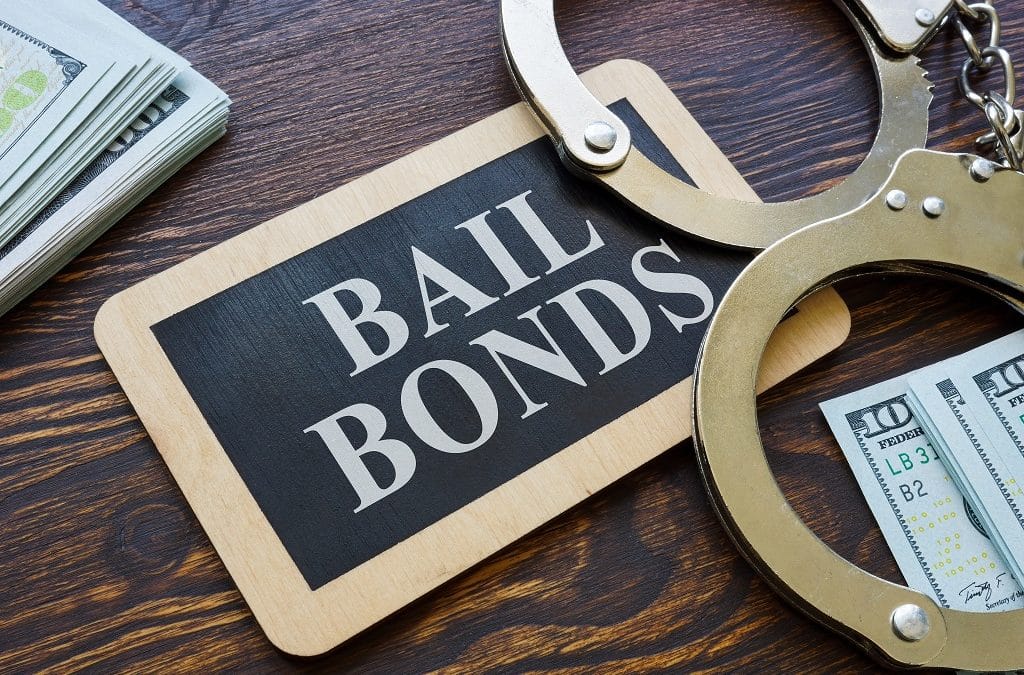When someone is arrested and requires bail, the process of obtaining release can be overwhelming. Many people turn to a bail bond company to help cover the cost of bail, which involves paying a percentage of the bail amount in exchange for the bond company covering the full bail amount. However, what happens if you don’t pay your Oklahoma City bail bond? Let’s explore the consequences and what you can expect if you fail to meet your payment obligations.
What is a Bail Bond?
Before diving into what happens if you don’t pay your bail bond, it’s essential to understand what a bail bond is. When someone is arrested, they are typically given the option to post bail, allowing them to be released from jail while awaiting trial. Bail is essentially a financial guarantee that the defendant will appear in court when required.
In many cases, individuals cannot afford to pay the full bail amount out of pocket, so they turn to a bail bond agency like Abraham’s Bail Bonds. In exchange for a non-refundable fee (usually 10% of the total bail amount), the bail bond company agrees to cover the full bail amount if the defendant does not appear in court.
Payment Terms and Agreements
When you work with a bail bond company, you enter into a legal agreement that outlines the terms of the payment. This agreement specifies how much the bail bond company will charge for their services, how the payments should be made, and what happens if you fail to meet your payment obligations. This contract is legally binding, and both parties are required to uphold their end of the deal.
If you are unable to pay the full amount upfront, many bail bond agencies offer payment plans. These plans allow you to make smaller, more manageable payments over time. However, failing to make these payments can lead to severe consequences.
Consequences of Not Paying Your Bail Bond
1. Forfeiture of the Bail Bond
If you fail to make the necessary payments on your bail bond, the first consequence is typically the forfeiture of the bail bond. This means that the bail bond company will be forced to pay the full bail amount to the court on your behalf. However, they won’t just absorb this cost—they will likely come after you for repayment.
Once the bail bond is forfeited, the bond company may take legal action to recover the full amount of the bond from you. This could include garnishing your wages, seizing assets, or taking other legal steps to ensure they recover the money owed.
2. Collection Agencies Involvement
Many bail bond companies work with third-party collection agencies to recover unpaid balances. Once your account is turned over to a collection agency, they will begin contacting you to collect the money. This can result in:
- Repeated phone calls and letters.
- Negative impact on your credit score.
- Increased financial pressure, as collection agencies often add additional fees and interest to the outstanding balance.
3. Collateral Seizure
In some cases, bail bond companies require collateral as part of the agreement. Collateral is a form of security for the bond company in case you fail to pay or the defendant skips court. Common forms of collateral include:
- Real estate (homes or land)
- Vehicles
- Jewelry
- Bank accounts
If you don’t pay your bail bond or the defendant fails to appear in court, the bond company has the right to seize your collateral. For example, they may foreclose on your home, repossess your car, or seize other valuable assets to recover the money owed.
4. Additional Legal Actions
If you don’t pay your bail bond, the bond company may also take legal action against you. This could involve filing a lawsuit to recover the unpaid balance. If the court rules in favor of the bond company, they can take several actions to collect the money, including:
- Wage garnishment: A portion of your paycheck may be withheld and sent directly to the bail bond company.
- Bank account levy: The court can order your bank to freeze your account and transfer funds to the bond company.
- Property lien: The court can place a lien on your property, making it difficult to sell or refinance until the debt is paid.
Can You Be Jailed for Not Paying a Bail Bond?
The question often arises: Can you be sent to jail for not paying your bail bond? In most cases, failure to pay a bail bond is treated as a civil matter rather than a criminal one. This means you cannot be jailed solely for not paying the bail bond company. However, if the defendant fails to appear in court (also known as “jumping bail”), the court may issue a warrant for their arrest, which could result in jail time.
In addition, legal consequences from lawsuits and collection actions can lead to severe financial strain, including potential loss of property or garnished wages. So, while you may not be jailed for not paying your bail bond, the long-term consequences can be significant and damaging.
Skipping Court: The Worst-Case Scenario
While not paying the bail bond is serious, skipping court dates is even worse. If the defendant fails to appear in court, the bail bond will be forfeited, and a warrant will be issued for their arrest. This can result in:
- Immediate re-arrest and return to jail.
- Loss of the bail bond fee and any collateral provided.
- Additional criminal charges for failure to appear in court, which could result in higher bail amounts or no bail being granted at all.
When you work with Abraham’s Bail Bonds, it’s crucial to attend all court dates to avoid these severe penalties.
Preventing Issues: How to Stay on Top of Your Bail Bond Payments
To avoid the negative consequences of not paying your bail bond, here are a few tips to stay on top of your obligations:
- Understand the Terms: Make sure you fully understand the payment terms and the consequences of missing a payment.
- Set Up a Payment Plan: If you can’t afford to pay the full amount upfront, ask about setting up a payment plan that works for your budget.
- Communicate with the Bond Company: If you’re struggling to make a payment, contact your bail bond agent as soon as possible. They may be able to adjust your payment plan or offer other solutions to help you avoid penalties.
- Attend All Court Dates: Make sure the defendant attends all scheduled court dates to avoid forfeiture of the bond and further complications.
Why Choose a Trusted Oklahoma City Bail Bond Agency Matters
When you’re dealing with the stress of an arrest, partnering with a reputable and experienced Oklahoma City bail bond agency like Abraham’s Bail Bonds can make all the difference. We understand the legal system, local court procedures, and what it takes to get your loved one released quickly. Choosing a trusted bail bondsman means you’ll receive not only financial help, but also expert guidance and ongoing support. This personal touch can reduce stress, prevent delays, and ensure you meet all legal obligations without risking additional penalties.
If you or a loved one needs assistance with a bail bond in Oklahoma City, contact Abraham’s Bail Bonds. We are committed to providing fast, reliable, and professional service. Call us today at (214) 533-0716 and let us demonstrate why we are the best bail bond agency in Oklahoma City. Our experienced team is available 24/7 to help guide you through the bail bond process. Don’t let unpaid bail bonds lead to financial trouble—reach out to the best bail bond agency in Oklahoma City today!

